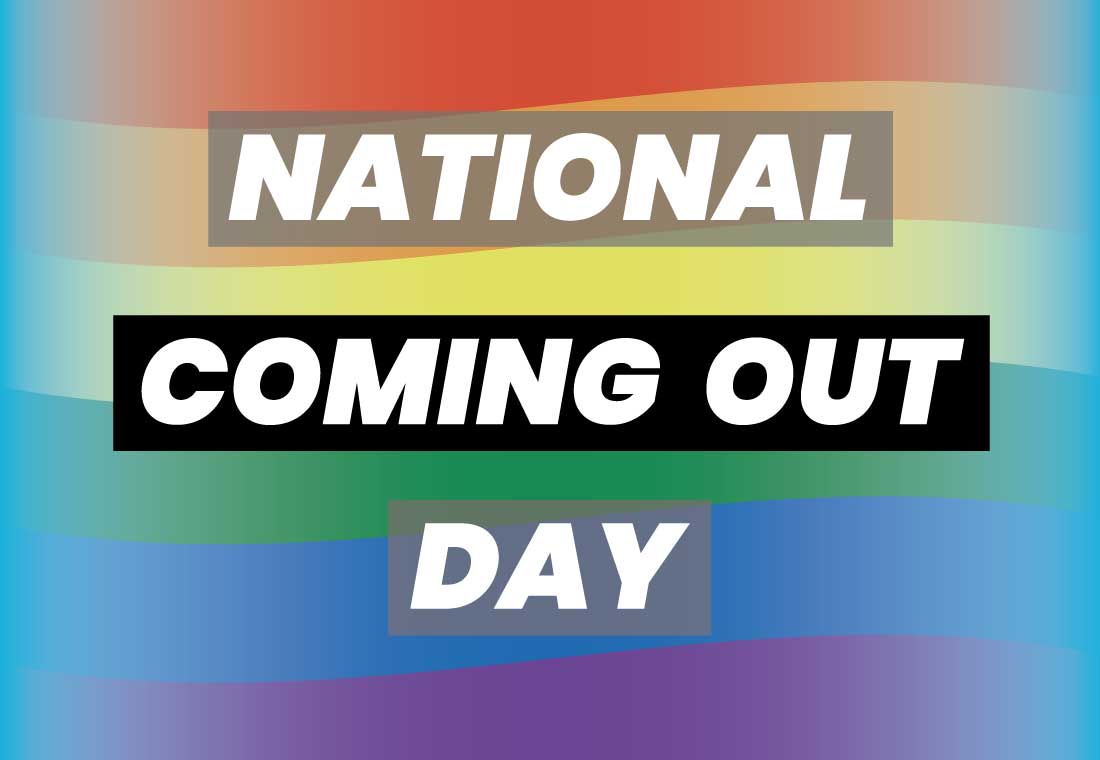What is World Coming Day?
Today we are honouring the courage of LGBT+ people around the world who have chosen to come out and live authentically by commemorating National Coming Out Day. The day was first observed on the one-year anniversary of the 1987 National March on Washington for Lesbian and Gay Rights. Over 30 years later, the day is just as relevant and significant as it was on day one.
The name of the day stems from the well-known phrase ‘coming out of the closet,’ which represents LBGT+ people sharing the truth of who they are with those closest to them.
Why do we still need World Coming Out Day?
Coming out can seem overwhelming and frightening as it is usually the first time that they have ever been completely honest and open about their identity.
No two coming out experiences are the same. It is a uniquely personal affair for each LGBT+ person. For many, it is not a one-time event, but rather a series of coming outs to their families, friends, colleagues, and even acquaintances. This is because an LGBT+ person will sometimes have to carefully navigate the beliefs, attitudes, and potential prejudices of the people they want to come out to.
After decades of advocacy, coming out to loved ones can be a relatively painless affair that sees some LGBT+ people met with acceptance and compassion. In some cases, it is just a matter of setting the record straight on any assumptions people may have about you.
Unfortunately, however, a loving and accepting reaction to coming out is not the reality for thousands of LGBT+ people in the UK and around the world. For many, the act of coming out is attached to feelings of fear; a fear of bullying, judgement, discrimination, and being ostracised by the people they care about the most. In certain parts of the world, even today, coming out can be a death sentence that is both socially and legally sanctioned.
This fear leads to many LGBT+ people feeling like they are caught between a rock and a hard place. There is often a very pressing anxiety about any negative repercussions they may face because of their sexuality or gender identity that lies in direct conflict with their desire to live authentically. This internal battle can lead to LGBT+ people feeling like they must stay ‘in the closet.’
Some LGBT+ people feel they have no choice but to live two separate lives, navigating two separate identities. In one life, they may present as a straight or gender-conforming person, while in another, they may live freely and openly as themselves.
The day is not about forcing or shaming people into coming out. Instead, it is about inspiring people to share stories about coming out to create a sense of comfort and hope for those struggling with coming to terms with or opening up about their identity. Speaking openly can help to change the wider narratives about coming out. It can encourage LGBT+ people to view coming out less as vulnerable self-exposure and more as a beautiful opportunity to share who they are with other people.
The truth is that no matter how easy or difficult an individual’s experience is of coming out, it remains an act of courage in the face of the ongoing obstacles and prejudices that LGBT+ people still face worldwide.
Over the last few decades, the LGBT+ community has made great progress toward equality. In the UK alone, we have seen the legalisation of same-sex marriage, educational reforms, legislation protecting the rights of LGBT+ people, and anti-discrimination laws. Above all, we have seen a dramatic shift in attitudes. Tolerance and acceptance of LGBT+ people is higher that it has ever been.
Yet, despite this progress, there is work left to be done. LGBT+ people in the UK continue to suffer from abuse, discrimination, and even violent attacks. Homophobia thrives in silence, so it is critical to keep an open dialogue about coming out and the challenges LGBT+ people continue to face.
In an ideal world, coming out would be unnecessary. Being straight and/or cis would not be considered the default. Until this is the case, however, it is vital for LGBT+ people and allies to continue celebrating this day.

